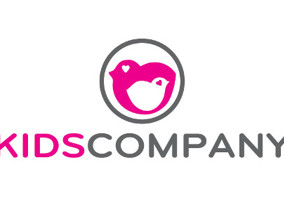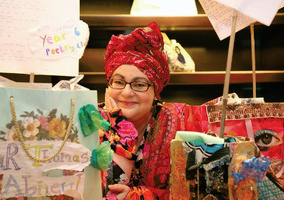David Ainsworth considers the implications of the latest developments in the Kids Company saga.
Earlier this week a group of former Kids Company trustees reacted angrily after rumours broke on Sky News that they were likely to be disqualified as company directors, over their part in the charity's collapse. If the Insolvency Service tried to enforce this position, they said, they would fight it all the way through the courts.
It is very easy to understand this position. Individuals involved rely on their position as company directors, to a greater or lesser extent, as a means of making a living. The charity's chair, former BBC creative director Alan Yentob, has already lost his day job as a result. Others will likely have suffered too. They will obviously go into battle to defend their livelihoods.
So this is a high stakes game, and it could provoke a long and bitter feud. But the question for me is whether the punishment fits the crime. Is it right that these individuals should be disqualified?
On the one side, there is an undeniable fact: these guys screwed up. A lot of people's money was invested in Kids Company. The charity was so badly run that it lost all that money. Legally, that's their fault.
But a lot of companies go under, and their directors don't get barred. The standard here has to be considerably higher. To be disqualified, you have to be what the Insolvency Service terms "unfit".
On a technical basis, the Kids Company trustees might meet that definition. Deliberately not paying tax is a qualifying condition for disbarment, and the charity arguably did that at least twice. Trading while insolvent is another condition, and you could certainly argue that Kids Company did this in its chaotic last days.
Being a trustee is serious business
It goes to show, once again, that being a trustee is a serious business, and that you shouldn't enter into it lightly.
So what are the arguments against disbarring, put forward by the Kids Company trustees?
One is that they took proper advice. Well, okay. First, it didn't look that way in the documentary that charted the charity's last days. It looked as if the charity's actions were being driven by the final spasms of its chief executive, the redoubtable but deluded Camila Batmanghelidjh, who was thrashing this way and that. Second, who cares? The buck still stop with you.
Another is the paper-thin argument that they were regularly inspected and had to pass audits. As we know, the charity was actually remarkably rarely inspected by anyone, and an audit doesn't prove much. Almost every disbarred director was subject to audit.
But the central argument of the trustees is really that they did this for free, to the best of their abilities, with the best of intentions, and that it seems overly harsh to have your ability to make a living removed as a result.
There is also the argument that they have been scapegoated. Many other charity trustees have done much worse, but at smaller charities and in less public circumstances, and have not even been removed as trustees, let alone directors.
It is demonstrably true that they are being scapegoated. Any number of Charity Commission enquiries detail much more egregious sins by trustees, up to the border of outright theft and fraud, which have seen less punishment.
But that isn't a defence for Yentob et al. The legal question seems simple: did you follow the rules? If so, fine. If not, tough. You can't argue that others got away with it, so you should too.
But it's hard not to be sympathetic, nonetheless. These people did their best, as they saw it. They weren't the first people to drink the Kool-Aid. Successive Prime Ministers hitched their horses to the Batmanghelidjh train too. The people who really deserve censure are the ones who handed over more than £40m of public money.
Implications for the wider sector
It's worth thinking what this means for the wider sector, too, and whether charities should be in favour of disqualification or not.
You could argue that hanging Alan Yentob up might light a fire under a few people to push through improved training and investment in the governance function. Pour encourager les autres, as it were.
But on balance, it is probably not something which will do charities good. It all comes down to how strict sanctions should be on trustees. I think we tend to load too much onto the board as it is, and this tilts the scale further in that direction.
It's already tricky to recruit the appropriate people to trusteeship. There is already widespread concern about the quality of governance in the sector, and a high profile lynching is not going to serve as much of a recruitment drive.
However while trustees might want to discourage the over-rigorous persecution of their peers, few are going to leap to the defence of those who ran Kids Company. Its closure was in the end a damaging farrago which presented the sector as the preserve of fantasists and loons.
So even if we conclude that it would be best if the Kids Company trustees were not disbarred, few will want to leap up and say so too publicly.
|
Related articles











